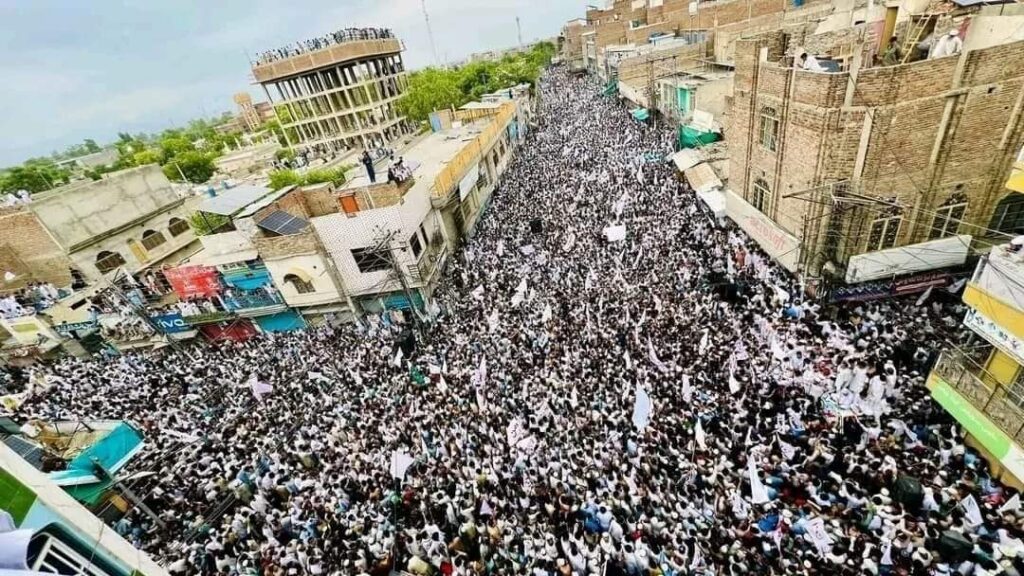On Friday, a massive demonstration unfolded as thousands of people voiced their opposition to a planned military operation by the Pakistan armed forces. The operation aims to eradicate militants operating along the volatile Afghan border.
According to eyewitnesses and officials, the protest took place in a tense atmosphere, with emotions running high. Tragically, during the rally, gunfire erupted, resulting in the death of at least one protester. The situation remains fluid, and authorities are closely monitoring developments.
The planned military action has sparked widespread concern, both domestically and internationally. Critics argue that such an operation could escalate tensions in the region and potentially exacerbate existing conflicts. Meanwhile, supporters of the military’s move emphasize the need to address security threats posed by militant groups.
As the situation unfolds, the world watches closely, hoping for a peaceful resolution and an end to violence along the border. The incident serves as a stark reminder of the complexities surrounding security operations in this volatile region.


